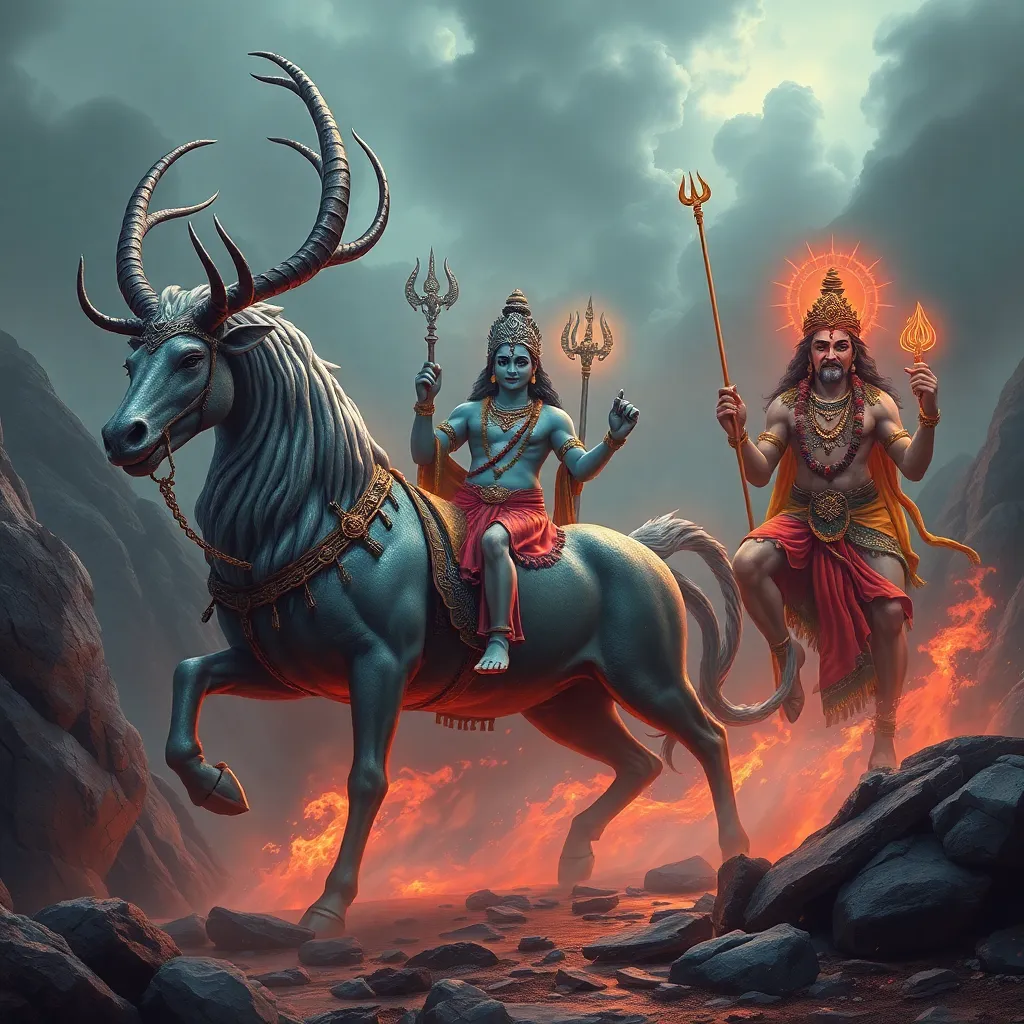Quetzalcoatl as a Teacher of Humanity: The Feathered Serpent’s Role in Moral and Ethical Guidance
I. Introduction
Quetzalcoatl, known as the Feathered Serpent, stands as a prominent figure in Mesoamerican mythology, particularly revered by the Aztecs and Toltecs. His narrative intertwines divinity with humanity, embodying the qualities of a creator god, a cultural hero, and a teacher. Throughout ancient cultures, the transmission of moral and ethical teachings has played a crucial role in shaping societal values and norms. This article delves into Quetzalcoatl’s pivotal role as a moral guide, exploring how his teachings continue to resonate with humanity.
II. Understanding Quetzalcoatl: The Feathered Serpent
Quetzalcoatl’s historical and mythological significance is vast, with roots tracing back to the early Mesoamerican civilizations. As a deity, he is often depicted as a serpent adorned with feathers, symbolizing the connection between the earthly realm and the sky. This dual representation emphasizes his role as both a god and a cultural hero, bridging the divine and human experiences.
A. Historical and Mythological Background of Quetzalcoatl
Quetzalcoatl’s mythology is rich and complex, featuring numerous stories that highlight his contributions to creation, agriculture, and civilization. He is credited with introducing essential practices, such as the cultivation of maize and the establishment of calendar systems, which were vital for the sustenance of Mesoamerican societies.
B. Symbolism of the Feathered Serpent in Mesoamerican Culture
The imagery of the feathered serpent transcends mere aesthetics; it embodies the harmony of opposites—earth and sky, material and spiritual. In many Mesoamerican cultures, this symbolism reflects the belief that true wisdom comes from understanding and balancing these dualities.
C. Quetzalcoatl’s Dual Nature: God and Cultural Hero
As both a god and a cultural hero, Quetzalcoatl represents the ideal of wisdom and virtue. His narratives often illustrate his struggles against other deities, showcasing his commitment to ethical principles and his dedication to humanity’s well-being.
III. Quetzalcoatl’s Teachings on Morality
Quetzalcoatl’s teachings emphasize core moral values that resonate across cultures. His principles provide a framework for ethical living that remains relevant today.
A. Principles of Honesty and Integrity
- Quetzalcoatl is often depicted as a champion of truth, advocating for honesty in personal and communal interactions.
- His narratives encourage individuals to uphold integrity, fostering trust within communities.
B. Emphasis on Respect for Nature and Its Resources
One of Quetzalcoatl’s essential teachings is the respect for nature. He embodies the idea that humanity must live in harmony with the environment, recognizing that all life is interconnected.
C. Advocacy for Personal Responsibility and Community Welfare
Quetzalcoatl encourages individuals to take personal responsibility for their actions and to consider their impact on the community. His teachings stress the importance of collective well-being over individual gain.
IV. Ethical Lessons from Quetzalcoatl’s Mythos
The myths surrounding Quetzalcoatl provide valuable ethical lessons, often through stories and parables that highlight moral dilemmas.
A. Stories and Parables Illustrating Ethical Dilemmas
Through various myths, Quetzalcoatl’s encounters with other gods often present ethical challenges that require discernment and moral courage. These stories serve as allegories, teaching lessons about right and wrong.
B. The Role of Sacrifice and Altruism in Quetzalcoatl’s Narratives
Quetzalcoatl’s willingness to sacrifice for the greater good reinforces the importance of altruism. His stories emphasize that true leadership involves selflessness and a commitment to the welfare of others.
C. Lessons on Justice and Fairness from His Interactions with Other Deities
Quetzalcoatl’s interactions with other deities often reflect themes of justice and fairness. He advocates for equitable treatment and the resolution of conflicts through dialogue and understanding.
V. Quetzalcoatl’s Influence on Mesoamerican Societies
The teachings of Quetzalcoatl have significantly influenced Mesoamerican societies, shaping their norms and governance.
A. Integration of Quetzalcoatl’s Teachings into Societal Norms and Laws
Many societal norms in ancient Mesoamerican cultures were rooted in the moral teachings attributed to Quetzalcoatl. His principles guided legal systems and community practices.
B. The Impact on Governance and Leadership Models
Quetzalcoatl’s ideals of wisdom and virtue influenced leadership models, promoting rulers who prioritized the welfare of their people and governed with integrity.
C. Preservation of His Teachings through Oral Traditions and Art
Quetzalcoatl’s teachings have been preserved through oral traditions, artwork, and archaeological findings. These mediums continue to convey his moral lessons across generations.
VI. Comparative Analysis: Quetzalcoatl and Other Cultural Teachers
Quetzalcoatl shares similarities and differences with other cultural teachers throughout history, offering insights into the universal quest for moral guidance.
A. Similarities with Other Mythological Figures (e.g., Prometheus, Buddha)
- Like Prometheus, Quetzalcoatl embodies the archetype of the bringer of knowledge and enlightenment.
- Similar to the Buddha, he emphasizes compassion, ethical living, and the importance of community.
B. Differences in Ethical Frameworks and Teachings
While there are commonalities, the specific cultural contexts shape the ethical frameworks of these figures. Quetzalcoatl’s teachings are deeply rooted in Mesoamerican cosmology and the relationship between deities and humanity.
C. Cross-Cultural Relevance of Quetzalcoatl’s Moral Guidance
The moral guidance offered by Quetzalcoatl transcends cultural boundaries, providing valuable lessons applicable to diverse societies and contemporary ethical discussions.
VII. Modern Reinterpretations of Quetzalcoatl’s Teachings
In today’s world, Quetzalcoatl’s teachings continue to influence ethical discussions and movements, highlighting their relevance in addressing global challenges.
A. Influence on Contemporary Ethical Discussions and Movements
Quetzalcoatl’s emphasis on community welfare and environmental stewardship resonates with modern movements advocating for social justice and sustainability.
B. The Relevance of Quetzalcoatl’s Lessons in Today’s Global Challenges
As humanity faces pressing issues such as climate change and inequality, the moral teachings of Quetzalcoatl offer guidance on cooperation, respect, and responsibility.
C. Efforts to Revive and Integrate Indigenous Wisdom in Modern Education
There is a growing movement to integrate indigenous wisdom, including the teachings of Quetzalcoatl, into modern educational frameworks, promoting a holistic approach to learning.
VIII. Conclusion
Quetzalcoatl’s enduring legacy as a teacher of humanity highlights the importance of moral and ethical guidance in navigating the complexities of life. His teachings emphasize honesty, respect for nature, and personal responsibility, offering invaluable lessons for future generations. As we reflect on these ancient teachings, it becomes clear that embracing the wisdom of the past can empower us to create a more just and harmonious world.



